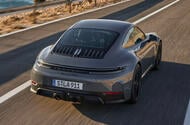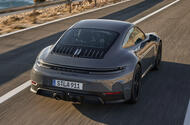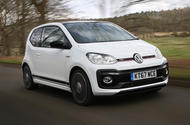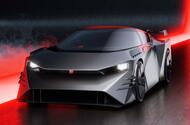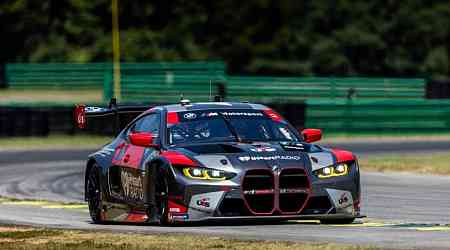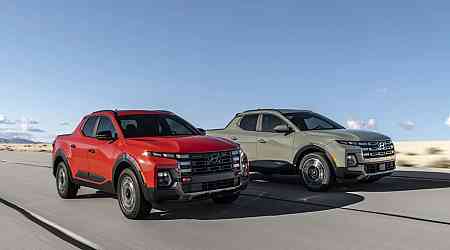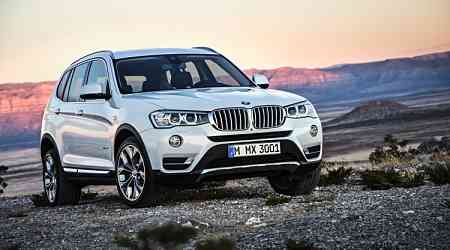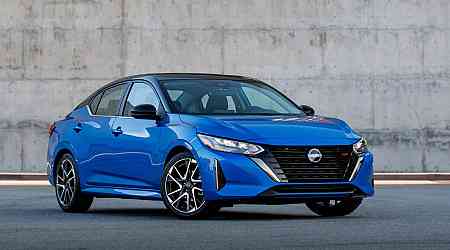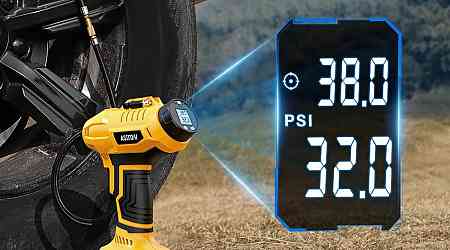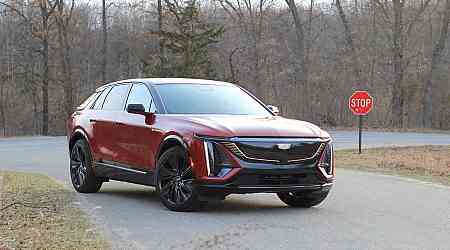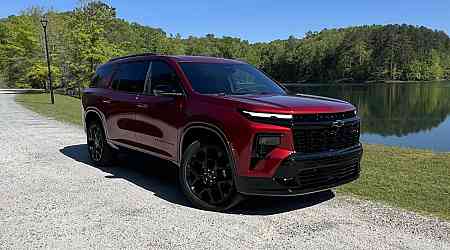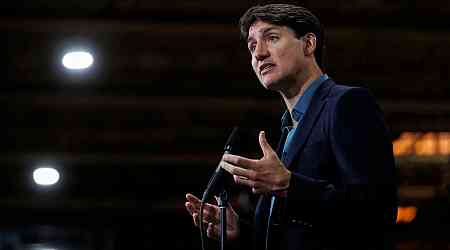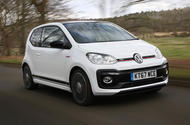Porsche believes synthetic e-fuels could account for “a significant share” of petrol usage by the end of the decade, boosted by increasing support for the technology from potential customers and governments.
The German firm has invested heavily in developing e-fuels, working with HIF Global and other partners to start a trial production facility in Chile. That pilot project is intended to show that e-fuels can be produced in a carbon neutral fashion, at a time when there are doubts over its viability.
The European Union currently intends to allow combustion-engined cars to remain on sale in Europe after 2035, but only if they run on carbon neutral e-fuels. But some in the industry fear that latter requirement is unviable and could lead to a ban on combustion engines 'through the back door'.
Porsche is attempting to showcase that e-fuel production can work at scale, with its focus as much on addressing how to reduce emissions from the existing global car parc. Millions of existing combustion engine cars will remain in use long for years to come, and Porsche believes e-fuels are a key step to reducing their environmental impact.
The e-fuel plant in Chile is run using renewable energy and currently produces e-fuel that is used in the Porsche Supercup race series and a number of other applications.
Porsche originally viewed e-fuels as a potential way to ensure its old cars could remain on the road in the future, rather than as a direct alternative to electric cars.
But Michael Steiner, Porsche’s research and development boss, said the success of the project – and increasing interest in alternatives to EV technology – could change that.
He told Autocar: “Since we started this project, more and more people – customers and politicians – have realised you cannot only push e-mobility. It’s the main track, but we have to think about the huge, huge existing fleet of ICE cars, which is still growing.
“Everybody has to substitute new cars step by step with battery-electric cars, but we have to take care how we could substitute all that fossil energy that we put into cars, ships, planes and so on.
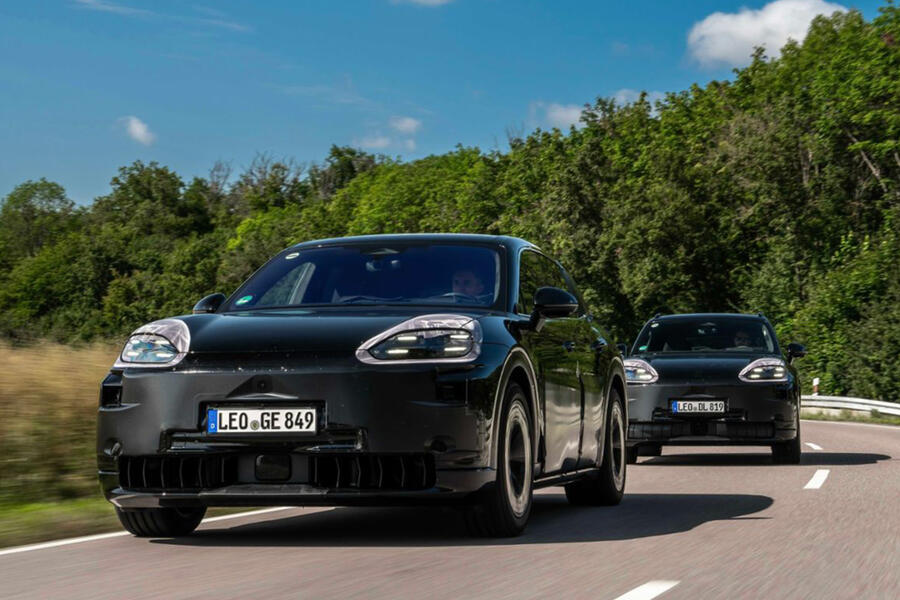
“We see this as a great additional strategy to e-mobility and we think we could really help the environment in a faster manner, because we could do something for existing cars.”
Steiner believes Porsche’s e-fuels plant should serve as “a role model”, with e-fuel production being scaled up. Rather than switching cars to run purely on e-fuels, Steiner said: “We could, little by little, gallon by gallon, substitute fossil fuel with e-fuel by mixing a blend.
“The key is how many tonnes [of fossil fuel] do you substitute, not which way. We could start like we did with biofuels by blending it in. The important thing is to cut fossil fuel use.”
Steiner said the recent slowdown in EV sales growth, which has prompted firms including Porsche to extend the life of ICE models, has also led to increased interest in e-fuels.
“We’re getting more and more support,” he said. “It’s still a long way to get the big wheel moving, but if you could push that – and we strongly want to push that – by the end of the decade, there could be a significant share of e-fuel in use.”
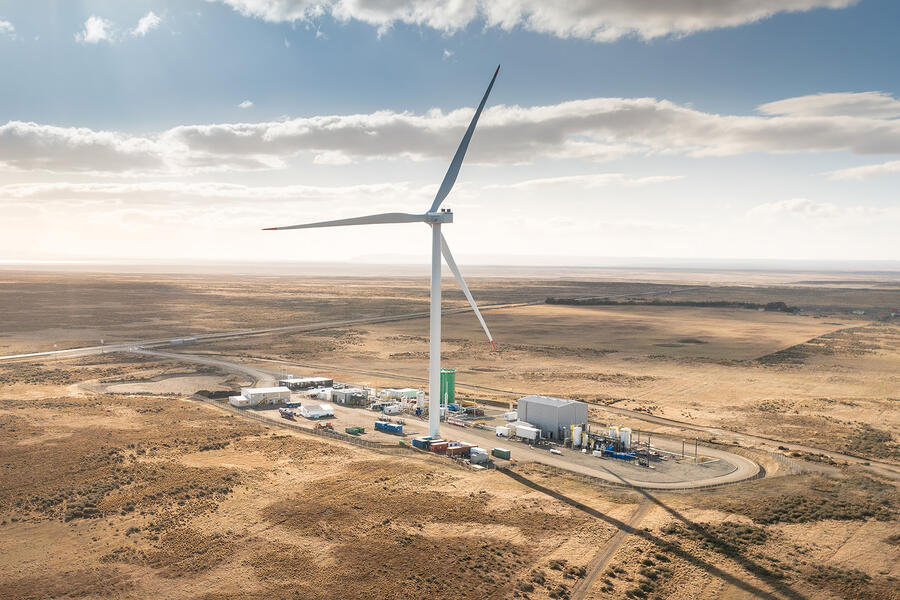
Porsche is currently preparing to add a new direct air capture facility to its Chile e-fuels plant, which will use recaptured thermal energy from the main plant to complement the wind and solar power already in use.
“With it, we can get the CO2 we need for the e-fuel from the ambient air,” said Steiner.
“If we achieve that, we have a circular model where we derive the energy from sun and wind power, and the elements we need from the air. That then gives us a circular technology that matches the biological cycle for fossil fuel – but that takes millions of years.”
Q&A with Michael Steiner, Porsche R&D boss
Porsche recently confirmed that it will extend the lifespan of the existing petrol-engined Porsche Cayenne and other ICE models, partly in response to the slowdown in EV sales growth. Autocar asked Steiner about the reasoning behind the changes.
Why are you changing your strategy on combustion engined cars?
“Our strategy has been three pillars: ICE, hybrids and full-electric cars. What we have done now is to adapt this strategy in terms of timing. We will be prepared that 80% of cars we sell in 2030 could be full electric – this is what we prepare for in terms of product portfolio – but the expectation is this transition will happen slower in a lot of markets.”
What updates will combustion models get?
“We will have additional upgrades for our plug-in hybrids and ICE cars so they are ready for new emissions legislation, but also other areas like infotainment and also in terms of engines and technology. So you can expect some upgrades on the V8 and V6 engines. The new Cayenne is fully electric, but for its whole lifespan we will have the ICE version in parallel. It’s the same for the Panamera, and we’ve also just brought an update to the Porsche 911 with a hybrid powertrain.”
Why is the 911 only a hybrid and not a full plug-in hybrid system?
“We did a lot of testing in the last decade with different hybrid concepts for the 911. I had the chance to drive plug-in hybrid concepts with bigger batteries and bigger range, but after a lot of work and prototypes, we came to this result for the 911. Since it is the core of our sports brand, we need a more lightweight proposal.”


















